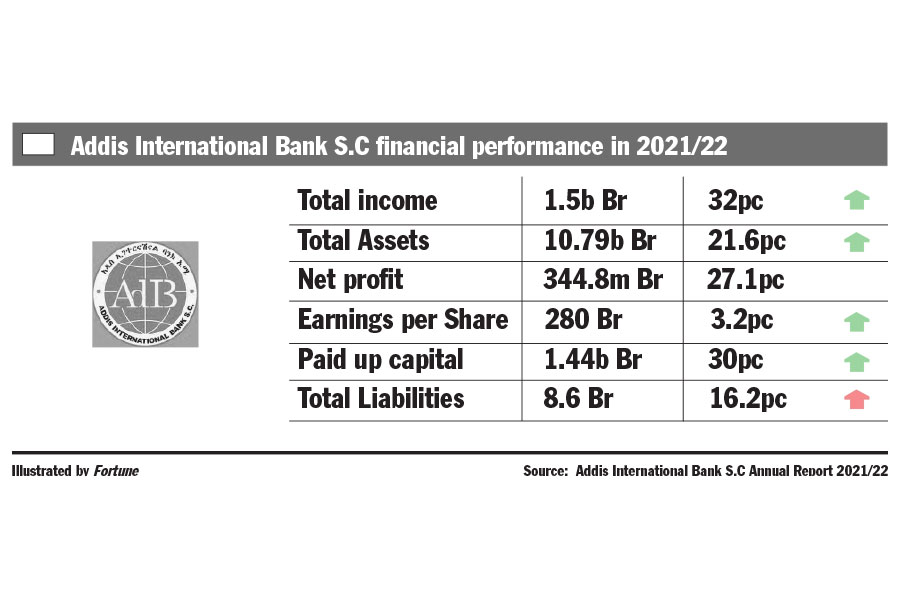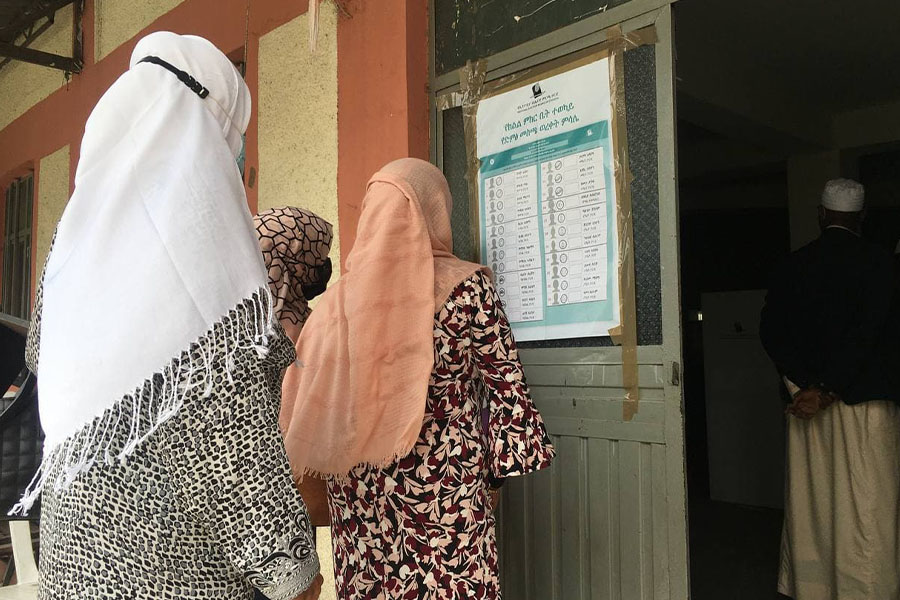
Oct 21 , 2023
By BERSABEH GEBRE ( FORTUNE STAFF WRITER )
The Addis Abeba Land Development & Administration Bureau is gearing up to provide thousands of previously undocumented properties with official landholding rights in the latest push towards a complete digital transformation. District branches of the Bureau were informed last month that they have one month to complete issuing landholding certificates to residents settled in undocumented plots.
These properties, which have been in a bureaucratic limbo due to unstable administrative oversight and shifting mandates until 2005, are getting a fresh look as part of the city administration’s ambition to streamline and digitise its property records. The Bureau is addressing a legacy issue, with properties either bequeathed before the administrative restructuring in the mid-1990s or those made in the subsequent decade without the benefit of rigorous legal holdings.
Khalid Nesredin, who heads the land registration secretariat, described the challenge.
“We’ve struggled with these properties for years due to their intricate history,” he told Fortune. “It’s time to put a lid on this.”
Successive city administrations have made overtures to incorporate these plots into official registries, but efforts have been piecemeal. The current drive is arguably the most ambitious, targeting around 34,000 plots for registration in a few weeks. A decade ago, landholding rights were granted to nearly 60,000 households for plots secured before the 1996 administrative changes. Over 47,000 plots acquired before 2005 found their place in official registries eight years ago.
“Residents were either uninformed or simply reluctant in past registration processes,” said Khalid.
While potentially beneficial to property owners, the process is not without its checks. Khalid disclosed that districts would authenticate claims using information from the Weredas, a lower administrative unit. Plots acquired illicitly post-2005 might face city administration appropriation and could also see built-up properties demolished.
However, the path to regularisation is not without its problems.
Mare Koychaw, who leads Lideta District’s Land Development & Administration Bureau, revealed that of an estimated 1,500 undocumented properties across 10 Weredas in the District, a paltry 27 have obtained landholding rights. He saw legal ambiguities between extant directives and a six-year-old circular which warrants amendments.
While certain prerequisites, such as proof of utility payments or construction permits, are non-negotiable, residents have a lifeline. A validation letter from the District’s housing bureau or corresponding utility authorities can pave the way for services. According to Mare, such regularisation could benefit the city and property owners significantly.
“It’s mutually beneficial,” she said.
District officials like Chernet Abebe, head of Land Development and Administration of Bole District, acknowledged the economic benefits.
“While property regularisation could boost city revenues, we’re treading carefully,” he told Fortune. “Not every illegally held plot will receive title deeds.”
Elias Berhanu is a researcher focusing on land issues. In his research paper released in 2021, he offered a nuanced perspective, suggesting that the historical drive to register undocumented properties inadvertently spurred illegal settlements. The allure of a perceived, albeit complex, legal loophole to land rights and the interplay of soaring housing prices with legal clarity intensified the proliferation of informal settlements.
Stringent preconditions, like adherence to the city’s master plan and minimum property size, would serve as qualifying criteria for registration.
The fiscal impact on property owners varies based on the property’s acquisition period. Those acquired before 1996 and smaller than 500sqm set to be charged three Birr for a square meter, while larger properties and those obtained between 1996 and 2005 are subjected to different rates.
Last year, land services brought a hefty 2.4 billion Br in revenues to the city coffers. The economic ramifications extend beyond city revenues. Properties that secure landholding rights after 2017 are subject to a one-time down payment of 10pc of the total land, with subsequent payments scheduled annually.
“Our vision is broader,” said Chernet. “Through this campaign, we’re integrating property holders more closely into the city’s system.”
However, there are caveats.
Arba Beyene, a lawyer with experience dealing with the land bureau, flagged potential pitfalls. He voiced concerns over the many prerequisites, warning that they could be grounds for misuse by less scrupulous bureau officials. Yet, he lauded the overarching objective.
“Property owners stand to gain significantly, with titles deeds used as collateral for loans,” he said.
PUBLISHED ON
Oct 21,2023 [ VOL
24 , NO
1225]

News Analysis | Apr 22,2023

Radar | Jun 20,2020

Fineline | Jun 29,2019

Fortune News | Jan 05,2019

Covid-19 | Jun 13,2020

Fortune News | Apr 24,2021

Radar | Feb 17,2024

Fortune News | Sep 30,2021

Radar | May 27,2023

Sunday with Eden | Jul 31,2021

Dec 22 , 2024 . By TIZITA SHEWAFERAW
Charged with transforming colossal state-owned enterprises into modern and competitiv...

Aug 18 , 2024 . By AKSAH ITALO
Although predictable Yonas Zerihun's job in the ride-hailing service is not immune to...

Jul 28 , 2024 . By TIZITA SHEWAFERAW
Unhabitual, perhaps too many, Samuel Gebreyohannes, 38, used to occasionally enjoy a couple of beers at breakfast. However, he recently swit...

Jul 13 , 2024 . By AKSAH ITALO
Investors who rely on tractors, trucks, and field vehicles for commuting, transporting commodities, and f...

Jul 12 , 2025
Political leaders and their policy advisors often promise great leaps forward, yet th...

Jul 5 , 2025
Six years ago, Ethiopia was the darling of international liberal commentators. A year...

Jun 28 , 2025
Meseret Damtie, the assertive auditor general, has never been shy about naming names...

Jun 21 , 2025
A well-worn adage says, “Budget is not destiny, but it is direction.” Examining t...